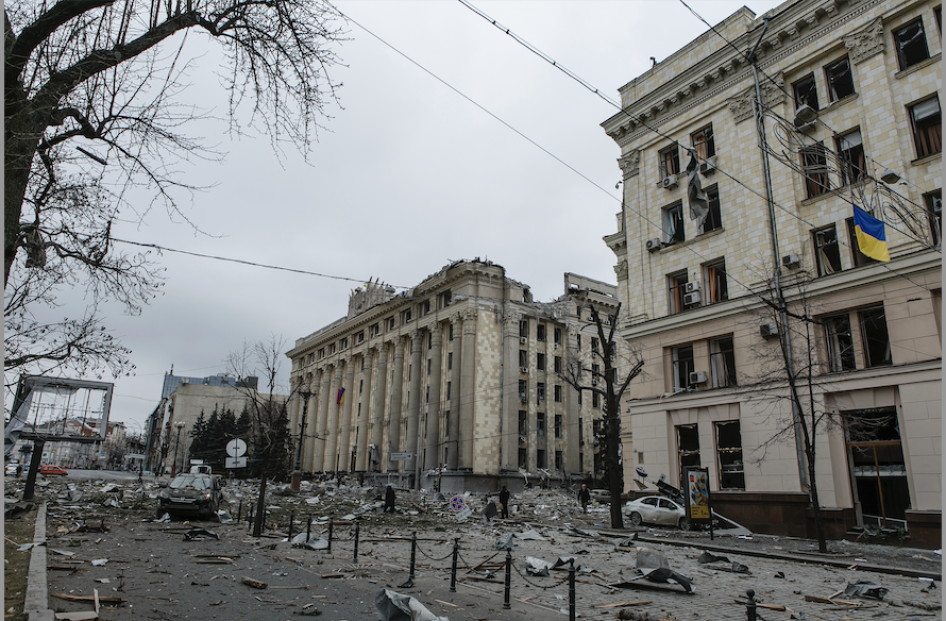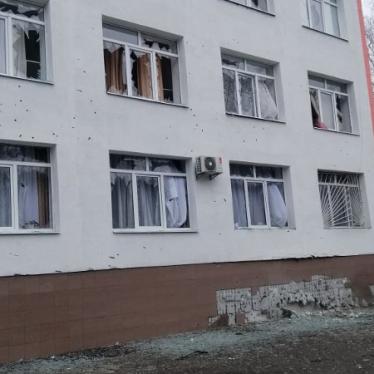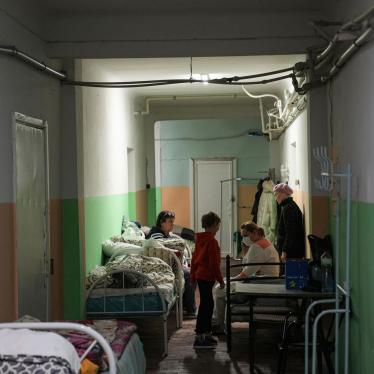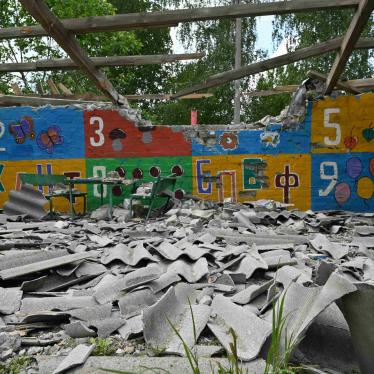“We stopped counting days and nights. It’s been a blur.” Like many in Kharkiv, Vladlena Salnykova, the chief doctor of Kharkiv’s Children’s Neurological Hospital No. 5 pauses before answering questions about the timeline of horrific events that unfolded before her eyes starting February 24. Kharkiv, Ukraine’s second largest city, has been under intense shelling by Russian forces. Fighting has caused extensive damage in many residential areas. Most of its population of 1.8 million has fled, but an estimated 500,000 people remain in the city.
Before the shelling, a total of 190 children, from infants to just under age 18, were residents in the hospital or the children’s hospice unit, 1.5 kilometers away. When the shelling started, those who could be discharged were, and staff relocated the remaining children to the hospice’s basement. “Only children with the most severe conditions are left here now,” one of the nurses, Tatyana told me. Salnykova said, “We don’t have enough staff to cover two buildings, so we all moved here. [The hospice’s] head doctor and I are here 24/7. Our building was not hit yet, God has spared us so far.”
She explained that evacuating the remaining children isn’t feasible for now. “Sixteen [of the] children have severe cerebral palsy, cannot walk. Seven others have other neurological conditions. We have a mother with a tiny baby. The children require constant care. The last evacuation… to Lviv was on a bus not equipped to transport children with severe health conditions. We need to evacuate them, but how?”
Meanwhile, supplies are dwindling.
On March 1, a shell damaged a V. Korolenko boarding school for blind children, in another Kharkiv neighborhood. Valentina Butenko, the director of Right to Choose, a group that works with people with disabilities, has worked closely with the school for years. She said the attack happened while children were having lunch in the basement of the three-story school building. The building withstood the blast, but the shock from the explosion shook the building and blew out all the windows. “Glass shards flew everywhere, children fell to the floor, they were terrified,” said Butenko. One girl was injured, and the director of the school sustained a head wound from a glass shard. All the schools’ children have since been evacuated.
However, other people with disabilities in and around Kharkiv have not been able to evacuate. Many live in the outskirts or in areas that have come under heavy shelling and lost electricity. Butenko said that before the war 45 volunteers supported about 300 people who are blind or have low vision in Kharkiv. Many of the volunteers have left and many people in Kharkiv are without phone service, making it difficult to provide support to people with disabilities, including to arrange for their evacuation.
Russia and Ukraine had agreed in principle to establish humanitarian corridors for the evacuation of “peaceful” civilians and delivery of medicine and food to the areas most affected by the conflict. However, efforts to evacuate civilians from Kharkiv and several other cities were halted as continuous fighting made it extremely dangerous for civilians to be on the move.
Civilians in Kharkiv and other areas of heavy fighting, who want to leave, need to be able to do so in safety. All armed forces should respect international humanitarian law and ensure civilians can evacuate.
In a landmark resolution on people with disabilities in 2019, the UN Security reiterated the need for all parties in conflicts to allow and facilitate safe, timely and unimpeded humanitarian access to all people in need of assistance, as required under international humanitarian law. Both Ukraine and Russia are also parties to the Convention on the Rights of Persons with Disabilities, which continues to apply throughout the conflict. The Convention imposes an obligation on state parties to act in accordance with their obligations under international humanitarian law and take all necessary measures to ensure the protection and safety of persons with disabilities in situations of armed conflict. Parties should strictly observe the laws of war, so that they can meet these obligations.









